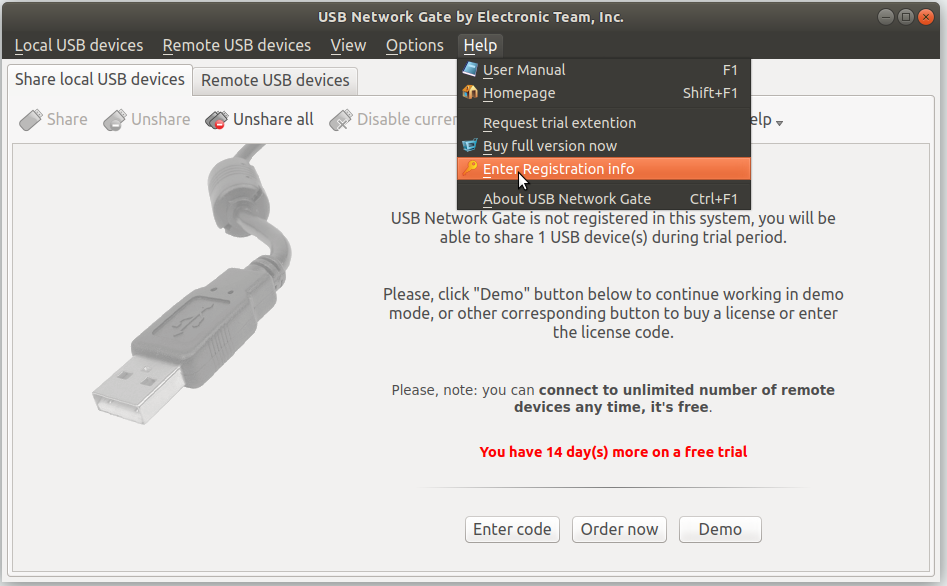
In its most simplistic terms, enabling Enhanced Session mode allows the “guest” OS to instantaneously access all local devices (such as SCSI controllers, USB dongles, and so on.) Passthrough USB in Hyper-V with Enhanced Session ModeĪn Enhanced session is a special mode that allows users to link their VMConnect.exe app with a VMBus component on a host computer. As we already mentioned, creating a vhd file might consume some time, it directly depends on the size of your USB disk. There are certain drawbacks to this method: you will have to reproduce the entire actions sequence for each USB drive connected to your Hyper-V virtual environment. Once your disk gets Online status, a drive letter will be assigned to it. Red arrow icon means that the disk is offline, right-click the disk and in the context menu displayed select Online. To check it, go to your VM, right-click Computer, choose ‘Manage’ or ‘Administrative Tools’ and go to Computer Management.Įxpand Storage and select Disk Management. If ‘My Computer’ does not show it as a removable storage, it might be because the drive is offline. Your removable storage should be displayed as a drive.

To resolve this challenge, you need to either resort to the help of some dedicated third-party tools or look for a workaround among features of your host OS. Server-side Hyper-V USB passthrough (SCSI controller)Ī user cannot access USB peripherals attached to a local PC while working in Hyper-V virtual machine. Advantages and disadvantages of RDP session in Hyper-V: Hit the icon to choose any local device for redirection to a VM. Once the user connects, a third icon will appear beside the Connection icon. Step 4: Choose GPO "Do not allow supported Plug and Play device redirection" and disable it to use PnP devices on a Virtual Machine.įrom here, users can easily redirect any device to their Virtual Machine(VM). Step 2: Type “gpedit.msc” and hit “Enter”-users can follow the same process via PowerShell (poweshell.exe).Ĭomputer configuration > Administrative templates > Windows Components > Remote Desktop Services > Remote Desktop Session Host > Device and Resource Redirection. Step 4: Choose the available GPO (there should only be one) and enable it-this alters the access right to “Administrators and Users”. Step 2: Type “gpedit.msc” within the window-which will open the computer’s group policy settings.Ĭomputer configuration > Administrative templates > Windows Components > Remote Desktop Services > Remote Desktop Connection Client > RemoteFX USB Device Redirection.

Step 1: Hit Win+R to open the “Run” window. Users can find their Windows 10 Hyper-V USB passthrough feature within Remote Desktop Connection-under the “Client options”. The RDP option is a great method for anyone using a Windows OS configuration. Users can also permit device access to guest operating systems as well. Users can virtualize their local resources (such as USB ports and hard drives) when connecting their Hyper-V virtual machine, and a host computer using Remote Desktop Protocol(RDP). In this section, we’ll cover how to enable Windows 10 Hyper-V client for Hyper-V USB passthrough.


 0 kommentar(er)
0 kommentar(er)
